Original Author: TechFlow
Recently, a16z founder funded an AI Bot with $50,000, and the subsequent emergence of a wildly popular Goat token by this Bot has become a hot topic.
But let's not forget, a16z's original intention was not to invest in memes; this top-tier VC invests in projects that bloom and bear fruit across various sectors.
Yesterday, a16z officially launched the decentralized social protocol Towns, which it had previously led a $25 million investment in. However, due to the overwhelming popularity of the meme super cycle, serious projects have been overlooked in the limited attention span.
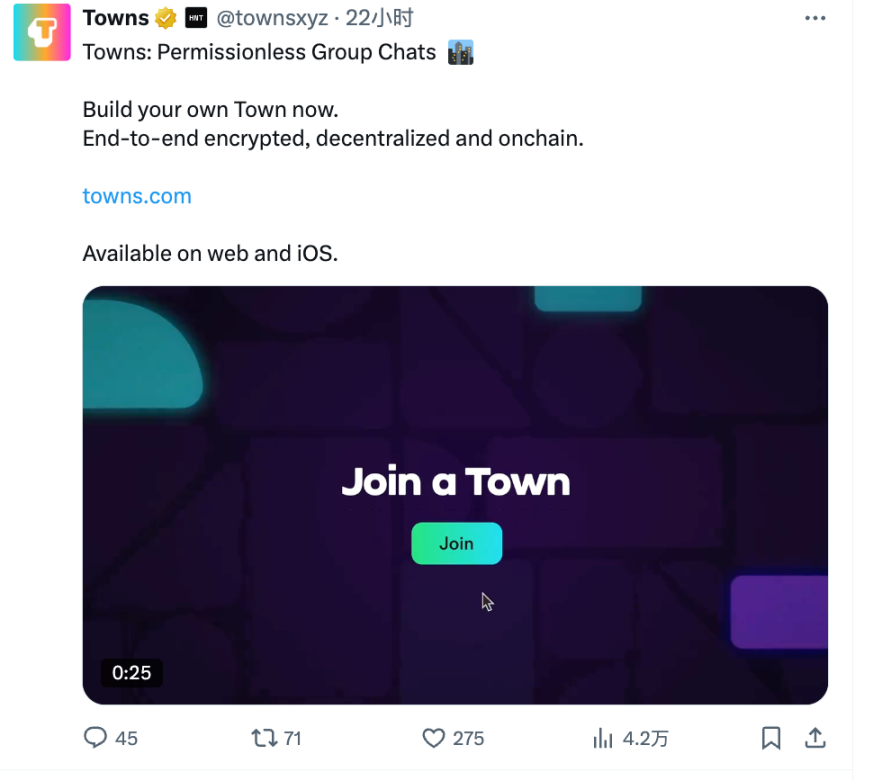
With the attitude of "better to miss a thousand than to overlook one," new crypto products always require research. What if an opportunity arises when no one is paying attention?
We quickly registered and experienced this product that looks more like a decentralized Discord. With the Telegram founder's arrest, FriendTech being abandoned, and Farcaster being lukewarm, is decentralized social making a comeback this time?
Functionality Experience: More Like Decentralized Discord
First, don't misunderstand; a16z's $25 million investment was not announced recently.
In February 2023, Towns raised $25.5 million in a Series A funding round led by Andreessen Horowitz (a16z), with participation from Benchmark and Framework Ventures.
After nearly two years of development and refinement, the Towns product was recently officially announced.
In the fast-paced world of crypto, where new trends emerge daily, taking two years to develop an application product seems relatively slow; however, the methodical approach gives a sense that they are genuinely focused on product development.
So, what are the functionalities of the Towns product?
- Login: No crypto wallet login option, blockchain logic encapsulated
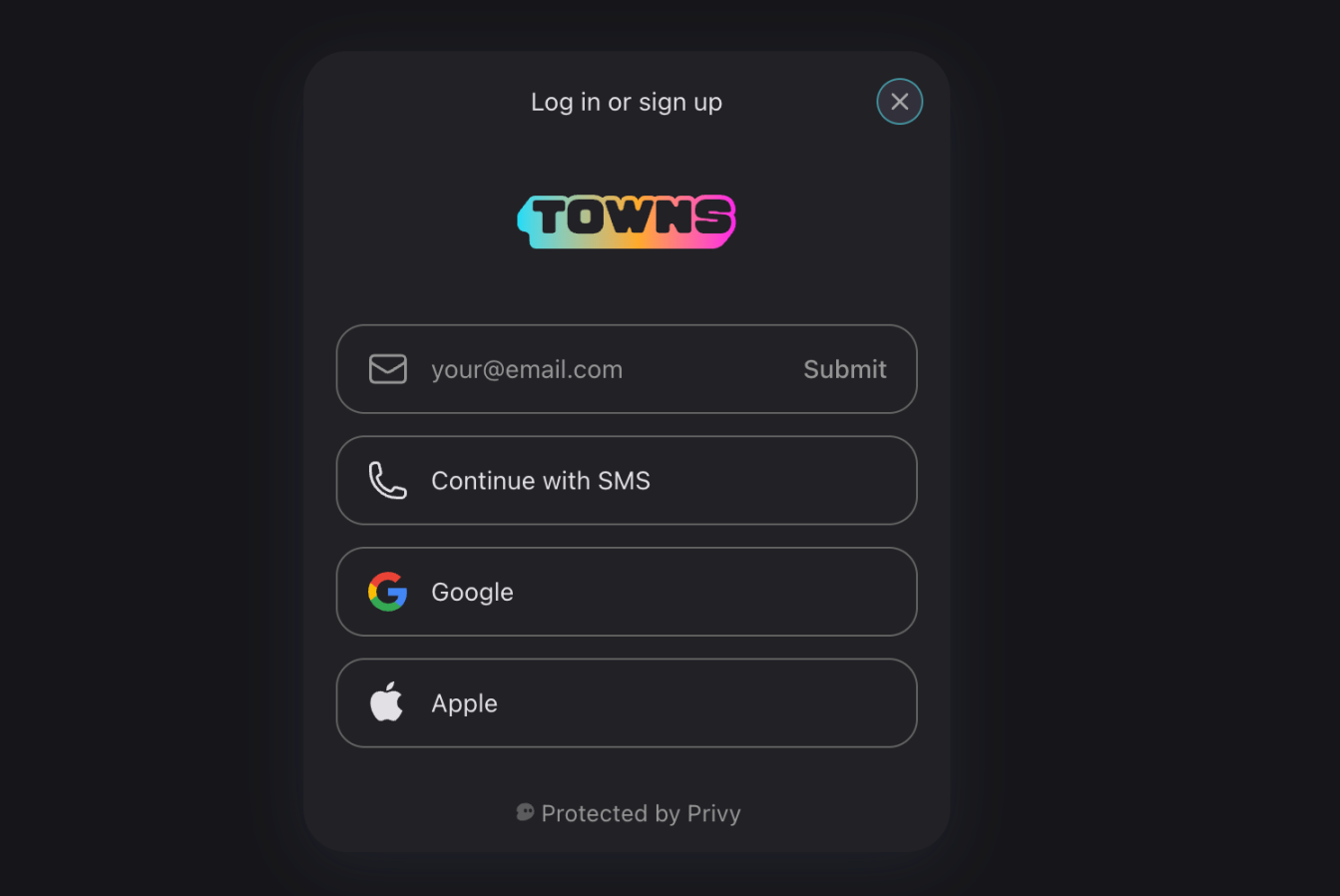
Currently, Towns offers a web version and an iOS app. Upon visiting https://www.towns.com/, you will see that there is no design for logging in with any wallet; instead, it directly provides mainstream options like third-party account login and mobile login.
After registering and entering the personal details page, you will find that the system has automatically associated and created a built-in wallet, likely using a keyless MPC wallet design. The blockchain logic is encapsulated during login, which is a common approach in most consumer-grade crypto products.
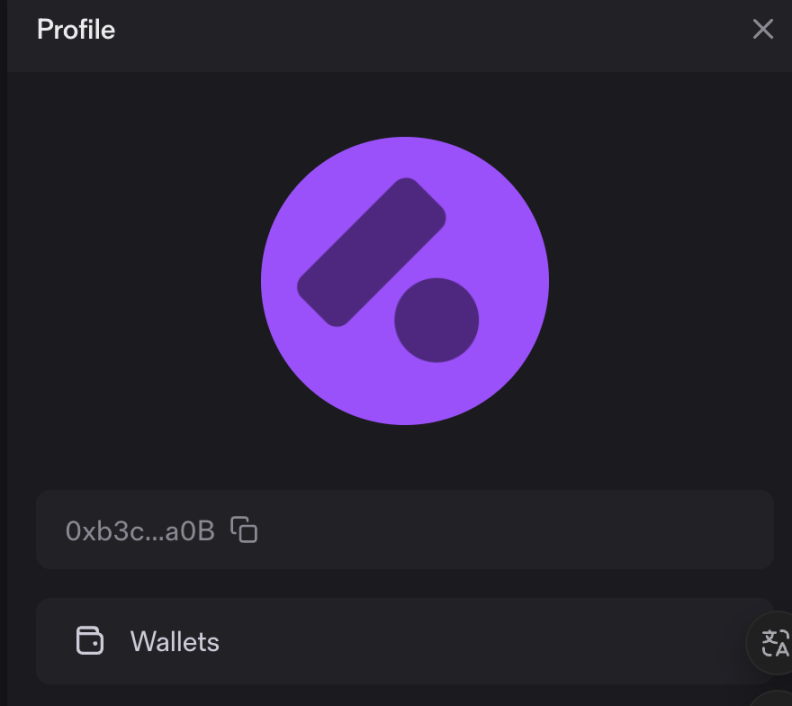
- Create Groups: Similar to Discord, but with a paid membership model for commercialization
After registering an account, Towns provides two options—join a group or create your own group.
The logic of this group is fundamentally similar to Discord, where different people find various interest groups based on their interests and start different types of discussions and functional divisions within the group.
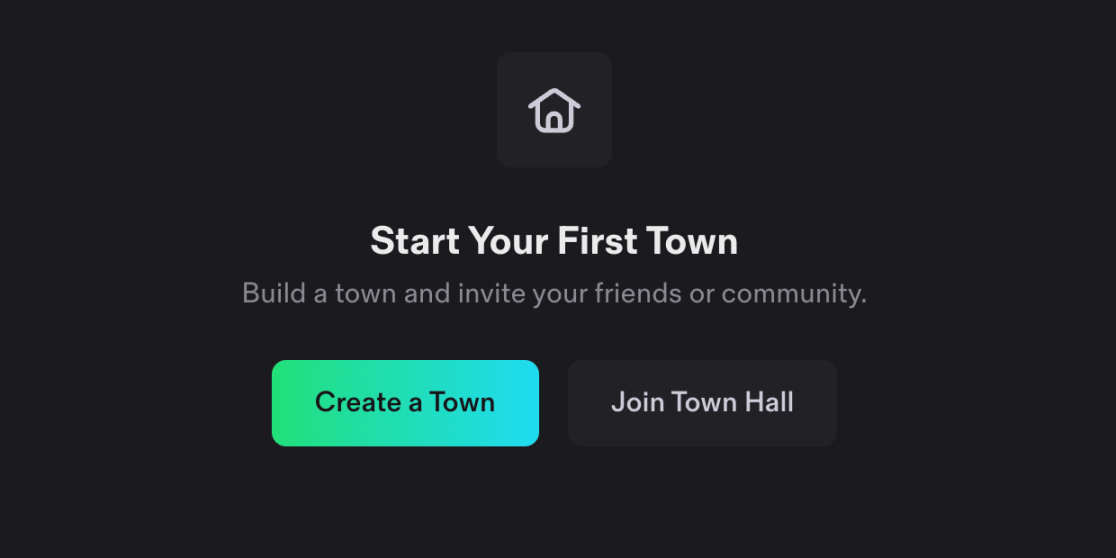
When creating a group, utilizing on-chain economics and token/NFT permission control, Towns comes with built-in membership fees and commercialization features.
As shown in the image, you can customize that the first 100 members to join are free; subsequent members can choose to pay the same fee to join or follow a model where early joiners pay less and later joiners pay more, creating a FOMO effect.
Additionally, since it is a completely end-to-end decentralized application, the creation of groups and the joining of members are on-chain actions, which will incur gas fees. Group creators can have the option to "prepay gas" for joining members; of course, you can also recoup this amount from their membership fees.
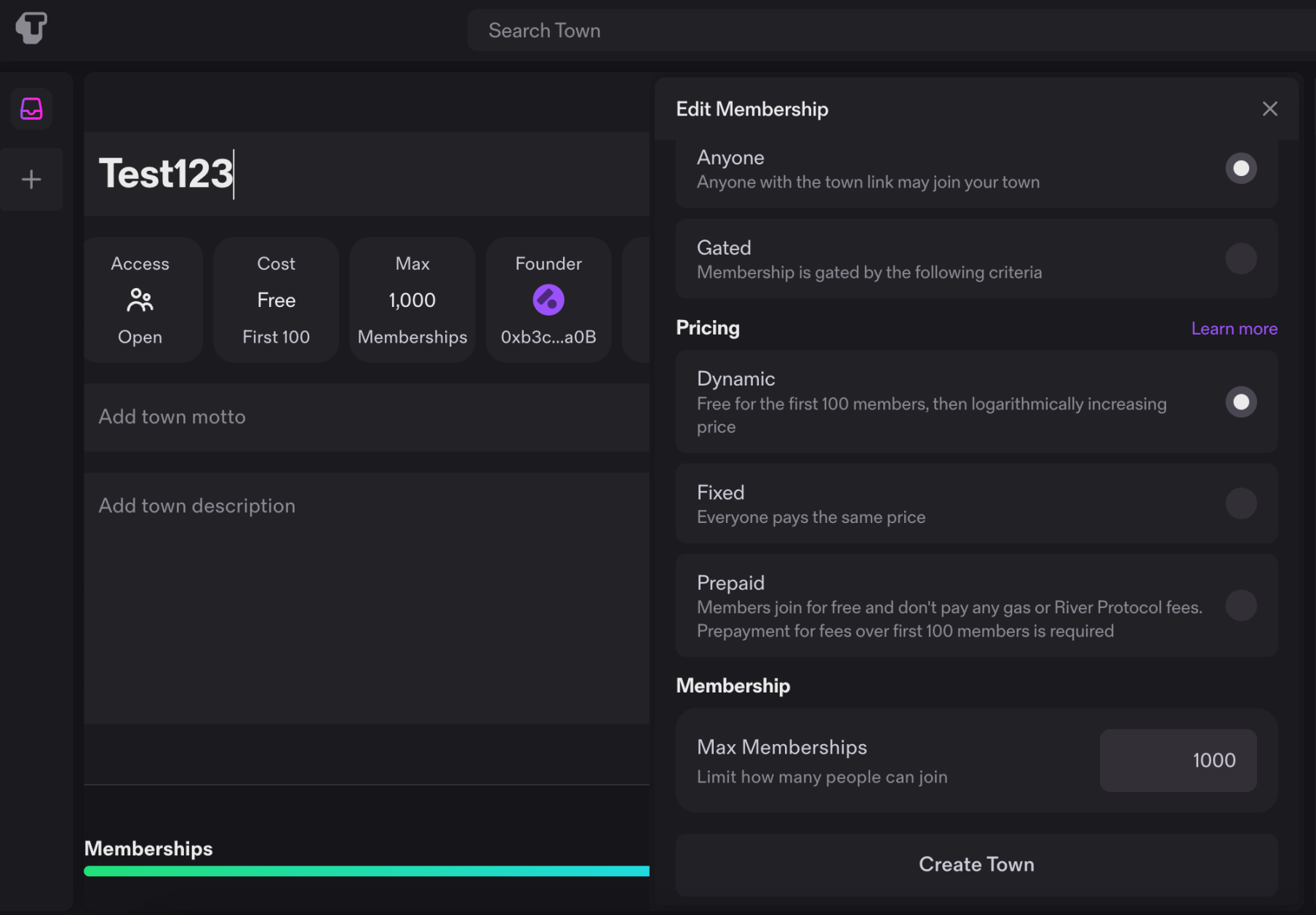
You can also set conditions, such as holding certain tokens or NFTs to join the group.
- Join Groups: Joining mints an NFT, controlling information access
To join a group, after clicking the button, you will find that the system automatically mints an NFT representing your identity in that group, confirming that it is indeed your action and that you have joined the group.
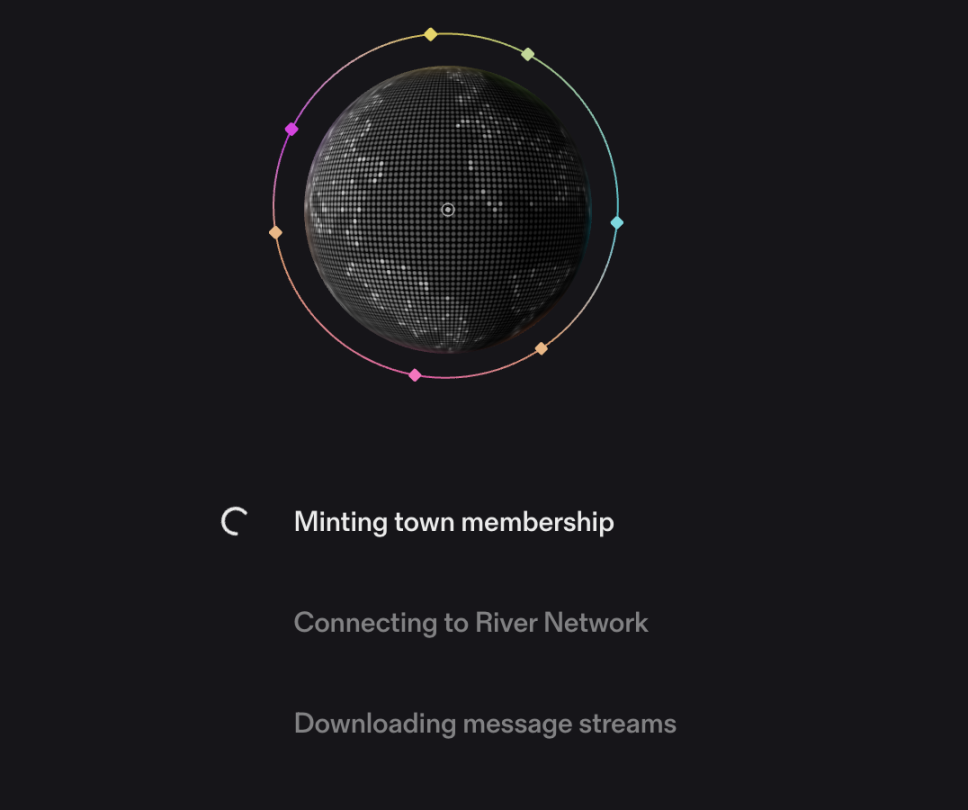
This action is then confirmed on-chain, and only after that will all information streams from the group be synchronized. Due to the decentralized design on-chain, your message flow and information are not controlled by any single centralized entity; however, the front-end experience is just like a normal Discord.
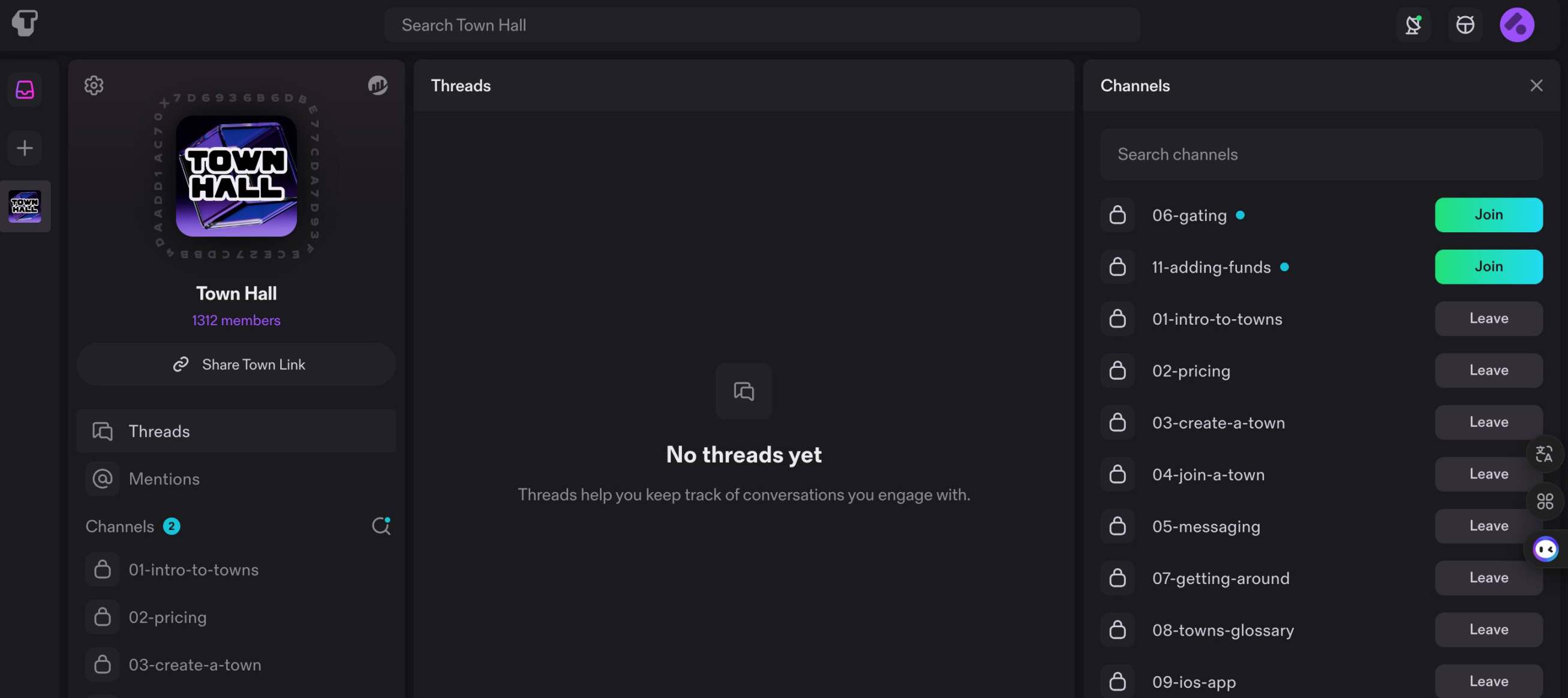
Underlying Technology: Application Chain Supported by River
So, how does Towns achieve being a fully on-chain social protocol? The answer lies in its underlying technology, River—a Layer 2 scaling solution specifically designed for decentralized social applications.

The River protocol provides Towns with a three-layer architectural framework, enabling it to achieve high-performance, decentralized social functionalities.
- EVM-Compatible L2 Chain
Towns operates on River's Layer 2 (L2) chain.
In the application scenario of Towns, this means that users' social interactions (such as posting, commenting, liking, etc.) can be completed quickly and at low cost on-chain, without being affected by congestion on the Ethereum mainnet.
- Decentralized Off-Chain Streaming Nodes
To handle real-time communication needs, Towns utilizes River's decentralized off-chain streaming node network. By working through an efficient peer-to-peer communication protocol, it can provide messaging performance close to centralized systems while maintaining decentralized characteristics.
This allows Towns to support real-time chat and notification features similar to traditional social platforms.
- Smart Contracts Deployed on Base
The core business logic of Towns is controlled by smart contracts deployed on Base. These smart contracts define the basic rules of the Towns social protocol, including user identity management, community creation, permission control, and more.
Based on these three components, each community group in Towns is actually an independent, programmable on-chain asset, referred to as a "Space." Each Space is a unique NFT representing ownership and governance of that community.
Moreover, and more importantly, to protect user privacy, Towns implements end-to-end encryption. This means that all communications between users are encrypted, and only the communicating parties can decrypt the content. This feature is directly integrated into Towns' protocol layer, ensuring that privacy protection does not rely on any centralized server.
Towns VS Warpcast
Both are projects backed by a16z; what are the similarities and differences between Towns and its predecessor Warpcast?
We created a table to help you quickly understand:
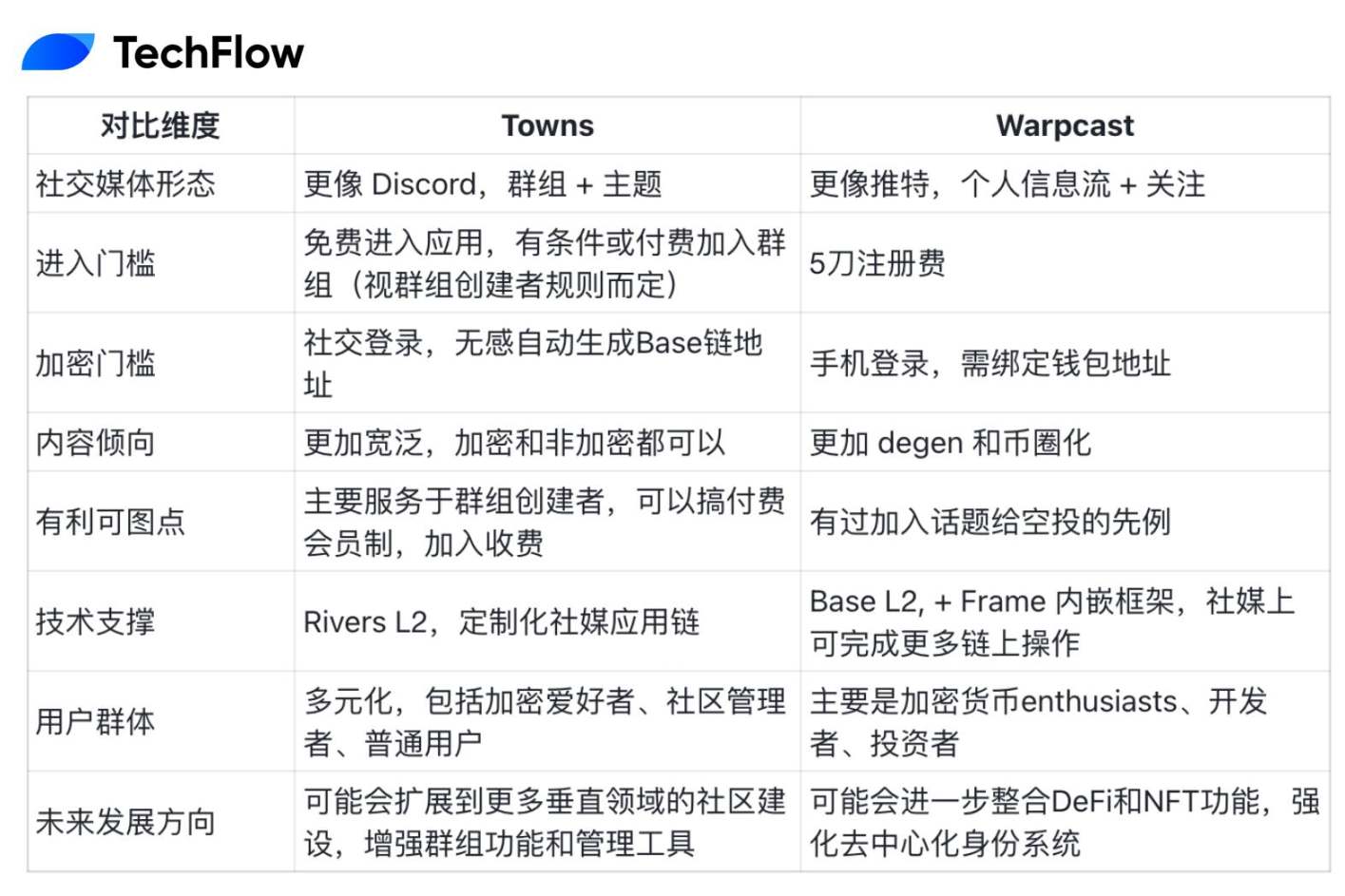
Finally, in the attention economy-driven crypto world, if Towns wants to grow, it must answer a key question:
Do users really have the motivation to abandon Telegram, Discord, or even Farcaster for the sake of so-called complete decentralization?
User habits cannot be changed overnight; sometimes, being accustomed to something is more persuasive than fearing the sky will fall and switching to another application.
The resistance for Towns clearly comes from these existing applications, making the Go To Market strategy even more crucial. For instance, Towns is also actively reaching out to popular crypto communities and NFT holders, creating communities to attract them to join, such as Azuki, Doodles, and Penguins shown in the image.
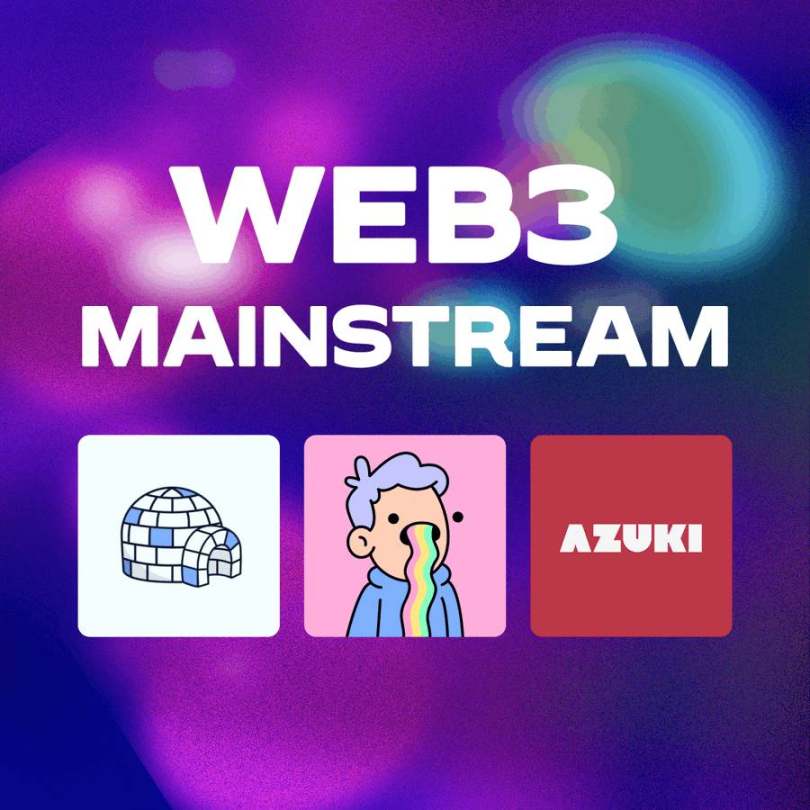
The premise for all this is profitability. Only when it is profitable will group creators be willing to build groups (for example, sharing Alpha), and those joining will be willing to pay an entry fee.
Additionally, the overall crypto market conditions cannot be ignored.
After all, if everyone has lost everything, who would want to join a group to chat? Crypto social applications still have a long way to go.
免责声明:本文章仅代表作者个人观点,不代表本平台的立场和观点。本文章仅供信息分享,不构成对任何人的任何投资建议。用户与作者之间的任何争议,与本平台无关。如网页中刊载的文章或图片涉及侵权,请提供相关的权利证明和身份证明发送邮件到support@aicoin.com,本平台相关工作人员将会进行核查。




